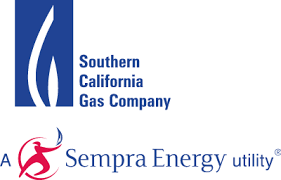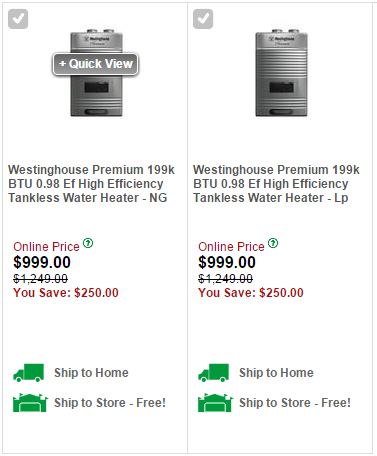 Westinghouse Water Heating has teamed up with SoCalGas, a Sempra Energy utility, to provide a tankless water heater rebate.
Westinghouse Water Heating has teamed up with SoCalGas, a Sempra Energy utility, to provide a tankless water heater rebate.
Our Energy Star certified tankless water heaters are eligible for rebates from the Southern California Gas Company. Receive a $200 rebate for your purchase of a Westinghouse Residential Tankless Water Heater.
To receive the SoCalGas rebate you must first purchase your Westinghouse Residential Tankless Water Heater. Next, have an authorized contractor install the unit into a single-family detached home. Lastly, fill out the application and mail it back to us with a copy of a recent gas bill, the product purchase receipt, and paid installation invoice.
A $400 rebate is offered on tankless water heaters with an EF rating of .90 or higher, such as our high efficiency Westinghouse Residential Tankless Water Heater when installed in a multi-family home.
To learn more about SoCalGas rebates, visit socalgas.com.


